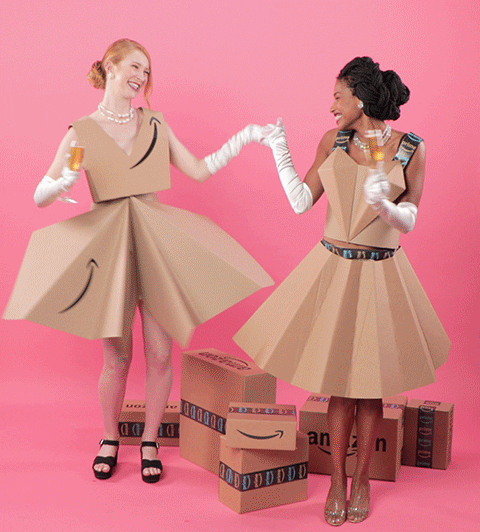Did you know that self-storage units are a $44 billion industry in the US? We have so much stuff that our homes, attics, garages, and basements can’t hold it all. Instead, we pay someone else to store the overflow.
And every day, we bring home more.

More clothes, more toys, more fitness gear, more kitchen gadgets. And then we buy bigger houses with bigger closets and bigger garages to hold it all. Eventually, we buy a bigger car so we can haul some of the excess to a bigger storage unit.
Your business has the same problem, and there’s nowhere to store the digital clutter. That stuff just lives rent-free in your head.
Things like the membership platform you grabbed at a sweet launch price but never set up. Or the Pinterest templates still waiting for you to open an account. Or the 53 “someday” ideas sitting in an email folder.
None of those things are bad. But together, they take up mental space.
They create overwhelm.
So what’s the fix?
A minimum viable business
The minimalism movement pushed back on our endless quest for more by encouraging us to focus on what really matters.
…minimalism is intentionally living with only the things I really need—those items that support my purpose. I am removing the distraction of excess possessions so I can focus more on those things that matter most.
It’s not just good for your home, though. It’s also a good way to look at your business.
What is the least amount of “stuff” you need make money? That’s your minimum viable business. And I promise, it’s a whole lot less than you might think. In fact, it’s only three pieces:
- Something to sell
- Someone who wants to buy it
- A way to get paid
That’s it.
No YouTube channel required. No Pinterest templates. No fancy funnel, all-in-one software, or new app that promises to run your business and make you a margarita you can sip on the beach.
Minimum viable businesses thrive on simplicity. An offer. A buyer. A way to get paid.
You might add more later, of course. You can launch a podcast, start an Instagram account, build a quiz funnel or a custom GPT. You can even rent a billboard on Route 66. But those things are add-ons, not essentials.
Treating add-ons as critical part of your business is where the overwhelm begins to build.

Strip your business down to the basics, and suddenly, things feel manageable again.
Maybe your minimum viable business is a coaching offer, the person you met at a retreat, and a Venmo link. Maybe it’s a tiny course, the 45 people who opted in after your last podcast interview, and a buy button you created with the help of PayPal.
You get the idea: Make a thing. Find a person who wants it. Tell them how to pay you.
Bottom-up vs. top-down building
If you’re a DIYer like me, you probably got this backwards at first.
I saw what other successful people had and I tried to replicate it. All at one time. I made a website and a blog and got the social channels and the shopping cart…all. the. things.
But I skipped the most important piece: The foundation.
No clear offer. No buyer. No way to get paid.
It’s like building a house by starting with the paint colors and curtains before you bother laying the foundation.
That’s top-down building. It’s pretty, but it doesn’t have any substance.
Bottom-up builders take a different approach.
An offer, a buyer, and a way to get paid.
There’s no overwhelm, because all you need is to be clear on what you sell and who you sell it to. What if instead of chasing more strategies and tactics, you turned all your attention to your minimum viable business?
Doing more does not equal earning more
My friend Jonathon is a dating and relationship coach. His offer is a private coaching program, and every action he takes either makes his program better, or gets it in front of his audience.
He doesn’t spend any time thinking about launching a new website or starting a Substack or opening an Etsy shop. He’s not fiddling around with a new membership platform or juggling 13 social media accounts. He’s focused on what he knows is working, not on chasing new strategies.
He’s also not overwhelmed.
I will be the first to admit this takes practice. It’s easy for me to believe the reason I’m not yet earning seven figures is because I’m not doing enough. That the only way to earn more is to do more.
But entrepreneurial success has little to do with working harder, and everything to do with digging deeper and doing better.




